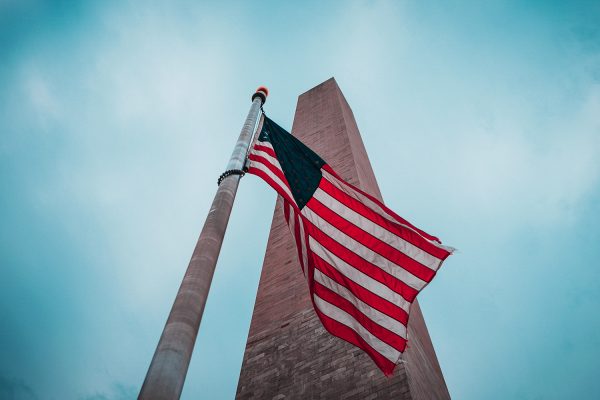
A lot of the news is focused on President Donald Trump’s failure to condemn this weekend’s racist violence in Charlottesville, Virginia and rightly so.
Given the opportunity to denounce white supremacists who carried Confederate flags and torches through the university town and chanted “Jews will not replace us” as well as the Nazi slogan “blood and soil”, Trump equivocated, saying he blamed “hatred, bigotry and violence that’s on many sides, on many sides” — suggesting that the people who came out to protest against the neo-Nazis were just as responsible for the altercations that occurred.
When asked if he considered the murder of one counterdemonstrator by a white man in his car an act of terrorism, Trump — to the delight of his alt-right fanboys — refused to say anything and walked off the stage.
Compare this with his insistence on using the phrase “radical Islamic terrorism” whenever a Muslim commits an act of violence — and his insinuation that anyone who doesn’t must be an appeaser or sympathizer of radical Islam.
Take a step back
But take a step back from what happened in Charlottesville.
What does it say about race relations in America that white supremacists feel they can march openly through the streets of a Southern city in the year 2017?
What does it say about a country that elects an apologist for white supremacy president?
What does it say about a party that accepts such a man as its leader?
The events of this weekend have revealed there is something rotten in America and it’s hard to pinpoint the cause.
Partisanship
Partisanship, possibly higher than at any point during the last century, helps explain why millions of Americans could vote for a man they knew was a liar, mentally unbalanced, a sexual predator and a political dilettante. They were convinced the alternative — a Democrat — was worse.
It also helps explain why the Republican Party, which once existed to defend the Constitution and uphold republican norms and family values, could nominate a man who respects none of those things.
Angry voters
Gideon Rachman argues in the Financial Times that declining living standards for many ordinary Americans and demographic shifts that threaten the majority status of whites created a pool of angry voters which elected Trump:
Combine that social and economic backdrop with fears of international decline, and a political culture that venerates guns and the military, and you have a formula for a country whose response to international crises may, increasingly, be to “lock and load”.
Party failures
Democrats, and the left broadly, share blame for resisting adapting the midcentury social model to the twenty-first century.
But Republicans have been better at opposing Democratic policy initiatives than introducing their own. Remember their recent failure to repeal and replace Obamacare, despite agitating against it for seven years?
America’s middle class desperately needs a new deal. There are worthwhile ideas on both sides of the political spectrum, yet neither party has been able to come up with a convincing program.
Republicans, and the right broadly, bear most responsibility for encouraging America’s dangerous gun culture, its toxic cult of masculinity and misguided notions of strength, all of which factored into both Trump’s election and Charlottesville’s “pro-white” rally.
There are no quick-and-easy solutions to this. Transferring to a globalized, gig economy, and updating the welfare state to its needs, is a daunting task. Changing people’s minds on gender, guns and race is even more complicated.
But the country needs to try or what happened in Charlottesville may only be the beginning.
